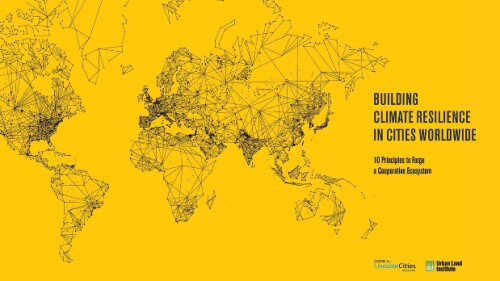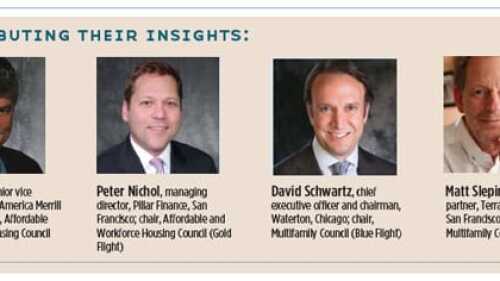Market and Feasibility Analysis
Honolulu Mayor Rick Blangiardi recognized teams from ‘Iolani School and Kalani High School for taking first and third place, respectively, in the ULI UrbanPlan National Championships. The competition was held virtually over Zoom in June with 12 student teams from across the United States participating. ‘Iolani, Kalani, and California’s Berkeley High advanced to the final round, and in a close competition, ‘Iolani won first place.
A new publication from ULI and Singapore’s Centre for Liveable Cities calls on cities worldwide to recognize their common challenges in building climate resilience. It sets out a strategy for mobilizing individuals—whether in business, government, or civic organizations, or as residents—to act as global citizens and take steps toward making their cities more climate resilient.
The 125-year-old parks system in Kansas City, Missouri, is a source of much civic pride. But the system also played a role in creating divisions in the community. A century later, these effects still reverberate in the parks system as development trends, zoning policies, and financial challenges have perpetuated inequity, according to panelists speaking at a ULI Advisory Services presentation in Kansas City, Missouri.
How can the real estate industry do a better job of meeting the needs of middle-income renters and buyers?
Cities and towns around the world are committing to increased use of solar, wind, geothermal, biomass, and hydro energy, and many have achieved some level of success. But so far only a handful can claim they are 100 percent powered by renewable energy.
Increasing density must form a key tenet of urban planning policy if cities are to tackle the pressure that migration is placing on housing, employment, and the environment, leading urban economist Edward Glaeser said during a ULI panel discussion in London. Launching ULI Europe’s program of work on density and the urban environment, the Harvard University economics professor and ULI Trustee said restrictive policies on the growth of cities will be increasingly harmful.
Infrastructure Is Key Priority in President’s Budget. Last week, President Obama unveiled his FY2012 budget, which includes a strong emphasis on infrastructure. While the budget contains a five-year freeze in discretionary spending to reduce the federal deficit, the president pegged infrastructure as a catalyst for job creation, economic recovery, and global competitiveness.











